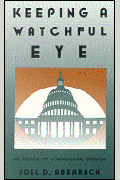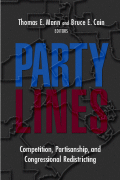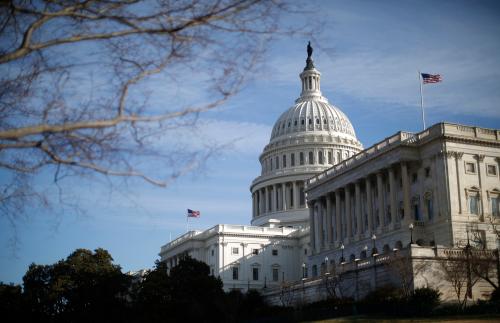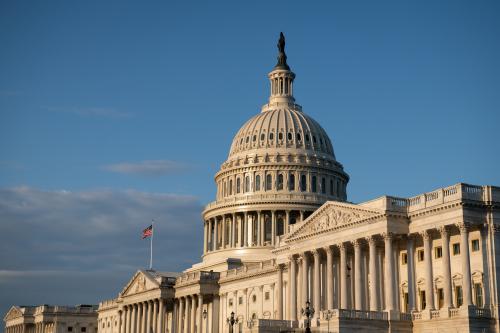Though buried in recent political headlines, the House’s Permanent Select Committee on Intelligence (HPSCI) wrapped up its dysfunctional investigation into Russian meddling the 2016 election. The forthcoming public report from the Republican majority is expected to deny the overwhelming consensus of the intelligence community that Russia’s interference favored now-President Trump. Democrats, in response, will release their own report outlining their objections to the GOP’s take and handling of the investigation.
Beyond the committee’s questionable investigatory procedures and conclusions, however, lay a more concerning prospect in our system of separated powers: the abdication of Congress’ rightful and vital oversight duties. The HPSCI investigation lay bare the trend towards rank partisanship in congressional oversight, exemplified by an unwillingness to remove Chairman Nunes from the reins of power. Nunes, a Trump partisan and member of Trump’s transition team, pantomimed recusal from control while a bad-faith ethics investigation reached the conclusion most favorable to keeping Nunes in his position.
Three years ago one of us wrote a report anticipating this breakdown in the HPSCI, and found that its institutional failings go beyond partisanship.
HPSCI is an unusually concentrated microcosm of congressional decay. The committee was created as the public’s window into the workings of the intelligence community, which is by its nature secretive, to ensure accountability and prevent executive and agency overreach. HPSCI is unusually dependent on the party center, and thus leadership support, since—unusually for Congress—its members are chosen solely by the speaker and minority leader. This fundamental difference is not the only abnormal committee rule under which HPSCI operates.
Unlike other committees, HPSCI members cannot avail themselves of the full measure of advice from their personal office staff, as personal staff lack sufficient security clearances. Moreover, committee staff—who are already too few in number—are chosen solely by the chair and ranking member, and are bound by loyalty to leadership. (By contrast, the Senate Intelligence Committee has some staff chosen by individual members of the committee). Civil society, which provides useful advice and assistance to other committees, is largely locked out of its indispensable auxiliary role. Accordingly, HPSCI Committee members are at the mercy of committee leadership and their staff, who are at the mercy of the speaker and minority leader. It is an upside-down pyramid balancing on a pinpoint that rests on a high wire.
The need for congressional oversight
Congress has the constitutional obligation to review, monitor, and supervise federal agencies. Oversight is a major means by which Congress can learn about and check the power of the executive branch, which has grown enormously in size and power. Even the mere threat of congressional oversight provides an active deterrent against agencies overstepping their statutory bounds. But this threat must be credible to work, and HPSCI’s behavior of late is best described as lacking credibility.
Why the breakdown matters
Congressional oversight is a primary mechanism for protecting individual liberty by providing a check on the executive branch and review of its interstitial decisions. The undermining of oversight is a catalyst for, and byproduct of, political partisanship. It incentivizes parties to run interference in investigations against their party for political purposes, and present committee reports that are used primarily as campaign messaging tools. Through these means it offers partisan actors another avenue to sow distrust in our political system.
While HPSCI is an outlier in many ways, it is the canary in the coal mine for Congress’s ability to acquit itself in the most serious of matters. The list of this most recent investigation’s breakdowns are many: Chairman Nunes retaining control of the committee; Steve Bannon ignoring the committee’s subpoena; multiple witnesses inappropriately invoking executive privilege; the failure to call key witnesses; and the unbelievable drama around the (plural) committee reports.
HPSCI was faced with a rare conundrum: the president’s own interests pitted against the national interest. Weakened as it is by partisanship and poor resources, the committee failed. Other committees, even those with better structures to cope with hotly partisan issues, should take this as a cautionary tale on the importance of preserving non-partisan cooperation.
To right Congress’s course before it is too late, the legislative branch must reinvigorate itself. It must provide its committees and members sufficient staff, abundant resources, knowledge about its inherent powers, and the opportunity to understand how and when to use them. It must find ways to transform rank partisanship into political dialectic. And it must act, and not merely react to the executive branch—or entirely fail to act at all.
The Brookings Institution is committed to quality, independence, and impact.
We are supported by a diverse array of funders. In line with our values and policies, each Brookings publication represents the sole views of its author(s).










Commentary
The cautionary tale of the House Intelligence Committee’s recent failures
April 4, 2018